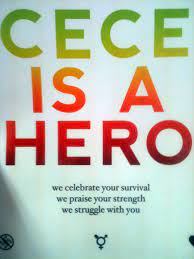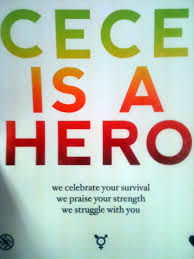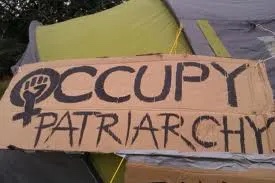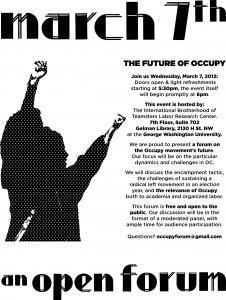
The headline reads, “Japanese American internment is ‘precedent’ for national Muslim registry, prominent Trump backer says”.
Prisons do not and will never make us safer. Everything along the spectrum that includes racist “internment camps”, which are prisons by another name, and a “national registry” of people who are Muslim is a hastening and intensifying of carcerality in our society. To be clear, the United States already has racist prisons. They’re called jails and prisons. And we already have prisons for immigrants in our country. They’re called detention centers, and the people imprisoned in them are often not counted in published numbers about this country’s gargantuan prison population.
In a fascist moment, the mode of resistance is clear: to imbue your every action with anti-fascism. This means that if there is a national registry of people who are Muslim or who are perceived to be Muslim, all people of all faiths and backgrounds need to go register for it. This means opening your home to your neighbors or to anyone who needs to hide. Solidarity is not even an option, it’s the choice of survival over necropolitics. Are you still in denial, do you still think this is far-fetched?
As everyone tries to process current events, I see people drawing a lot of comparisons between this moment and Nazi Germany. Those comparisons are important and not melodramatic, but there are some issues with them.
First, the comparison implies that previously this country wasn’t already a white-supremacist nation, wasn’t founded on racism, genocide, and slavery; hasn’t been a bloody colonizer, hasn’t destabilized/invaded other countries, hasn’t created classes of citizens that put some closer to survival and some to death. Of course, it has. And it has already been rounding up people based on ethnicity/nationality and sending them out of the country, in the millions, already. Most of all under Obama, sorry-not-sorry. The only answer to this systemic violence is to demand an abolition of borders themselves.
Second, the comparison brings us to a question of citizenship and legality, and again I see people missing some aspects of that. For example, the idea that the difference (between now and Nazi Germany) is that Jewish people WERE citizens, while undocumented people here are not. Let’s unpack that. Citizenship — and laws themselves — is not a divine mandate, nor an intrinsic natural feature. Actually, the idea that citizenship/lawfulness IS a natural feature is a tenet of Nazism, of eugenics, of racism. (I’d say “antisemitism” but the category “Semite” itself is a racist and meaningless invention, and doesn’t actually specifically refer to Jews.) Citizenship is, the law is, arbitrary and ever changing. It operates on the whim of the state, and it is a weapon that can be deployed against anyone. Citizenship is NOT a stable category. YOUR citizenship, if you have it, will NOT protect you. Your whiteness, if you have it, will not protect you. If you stand idly by while people are deported/rounded up/added to a registry, you’re not only complicit, you’re ignorant. If it can happen to anyone, it could happen to everyone. This is why our demand must be an abolition of borders and other forms of violent containment, including prisons, poverty — capitalism.
“If they come for me in the morning, they will come for you in the night.” Angela Davis
“If they take you in the morning, they will be coming for us that night.” James Baldwin

(Photo Credit 1: Intro to Women’s Studies S12) (Photo Credit 2: Fortune / Michael B. Thomas / AFP)





